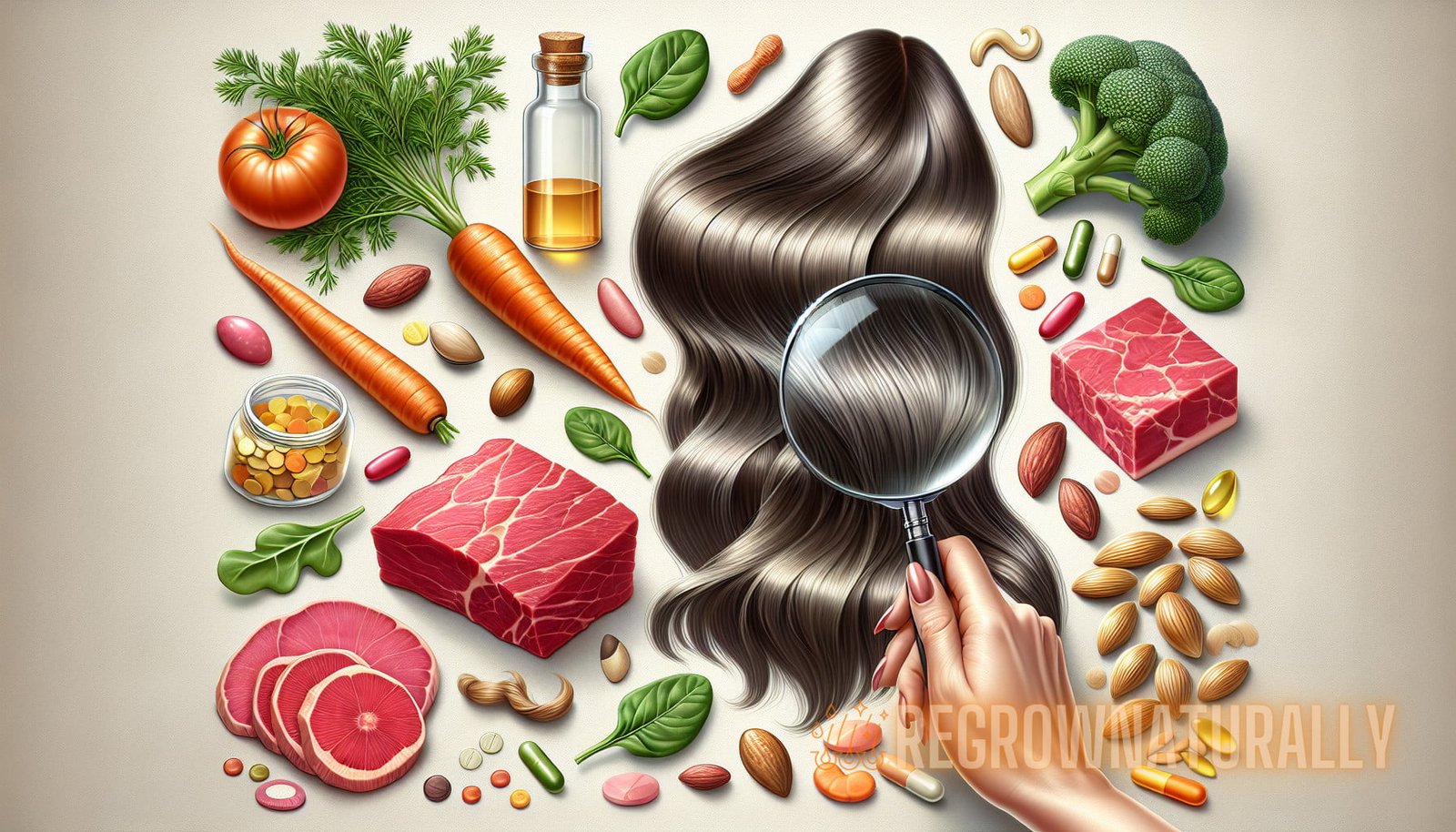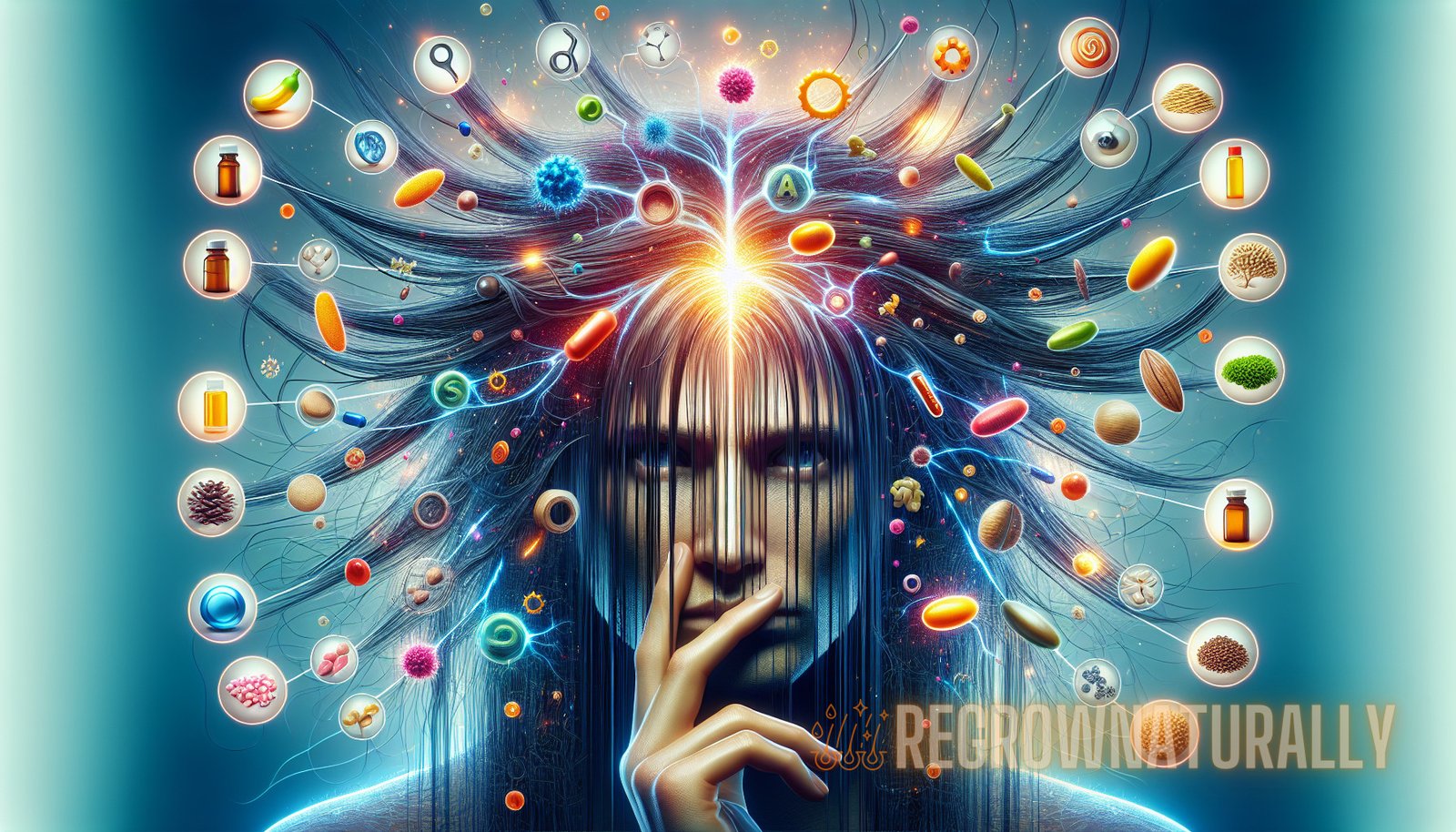The Nutritional Connection: Exploring the Impact of Vitamins and Minerals on Hair Health
Hair is more than just a fashionable accessory. It serves an important biological purpose, protecting our scalp from harmful UV rays and regulating body temperature. However, when it comes to hair health, many people focus solely on external factors like hair care products and styling techniques. While these external factors are undoubtedly important, they don’t tell the whole story. The truth is, the health of our hair starts from within, with the nutrients we consume. In this article, we will explore the fascinating connection between hair health and nutrition, specifically focusing on the impact of vitamins and minerals. By understanding the role of these essential nutrients, we can unlock the secrets to achieving and maintaining luscious, healthy hair.
The Importance of Hair Nutrition
Just like any other part of our body, our hair requires a balanced diet to thrive. Our hair follicles, the tiny structures responsible for hair growth, depend on a steady supply of nutrients to function properly. Without adequate nutrition, the hair growth process can be disrupted, leading to various issues such as hair loss, brittleness, and dullness.
While many factors contribute to hair health, such as genetics and hormonal changes, nutrition plays a significant role in determining the quality and strength of our hair. Research has shown that deficiencies in certain vitamins and minerals can have a direct impact on hair growth and appearance. By incorporating the right nutrients into our diet, we can provide the building blocks our hair needs to grow and stay healthy.
The Essential Vitamins for Hair Health
Vitamins are micronutrients that play a vital role in various bodily functions, including hair growth and maintenance. Let’s take a closer look at some of the key vitamins that promote healthy hair:
Vitamin A
Vitamin A is essential for the growth of all cells in the body, including hair cells. It helps produce sebum, an oily substance that moisturizes the scalp and keeps the hair healthy. Good sources of vitamin A include carrots, sweet potatoes, and spinach.
Vitamin C
Vitamin C is a powerful antioxidant that helps protect the hair from damage caused by free radicals. It also aids in the production of collagen, which is a vital component of hair structure. Citrus fruits, strawberries, and bell peppers are excellent sources of vitamin C.
Vitamin E
Vitamin E is known for its antioxidant properties, which help neutralize damaging free radicals and promote hair growth. It also improves blood circulation to the scalp, ensuring that hair follicles receive adequate nutrients. Nuts, seeds, and avocados are rich sources of vitamin E.
B Vitamins
The B-vitamin complex consists of several vitamins, including Biotin (B7), Niacin (B3), and Cobalamin (B12), all of which are crucial for healthy hair. Biotin, in particular, is often recommended for promoting hair growth and preventing hair loss. B vitamins can be found in whole grains, eggs, nuts, and leafy greens.
The Impact of Minerals on Hair Health
In addition to vitamins, minerals also play a vital role in maintaining healthy hair. These micronutrients are involved in various physiological processes that affect hair growth and quality. Here are some of the key minerals that have a significant impact on our hair:
Iron
Iron is essential for the production of hemoglobin, a protein that carries oxygen to the tissues, including the hair follicles. Iron-deficiency anemia is a common cause of hair loss, so it’s important to ensure an adequate intake of iron-rich foods such as red meat, spinach, and lentils.
Zinc
Zinc is involved in DNA and protein synthesis, both of which are crucial for hair growth. It also helps regulate hormone levels, which can affect the health of our hair. Oysters, beef, and pumpkin seeds are excellent dietary sources of zinc.
Selenium

Selenium is a powerful antioxidant that helps protect the scalp from damage caused by free radicals. It also plays a role in the production of selenoproteins, which are necessary for proper hair growth. Brazil nuts, seafood, and eggs are rich sources of selenium.
Copper
Copper is involved in the synthesis of melanin, the pigment that gives color to our hair. It also aids in the production of collagen, which is essential for strong and healthy hair. Good dietary sources of copper include organ meats, seafood, and nuts.
Silica
Silica is a trace mineral that is essential for the formation of collagen and the maintenance of hair elasticity. It also helps prevent hair breakage and promotes healthy hair growth. Silica can be found in foods such as cucumbers, oats, and strawberries.
Integrating Hair-Nourishing Nutrients into Your Diet
Now that we understand the importance of vitamins and minerals for hair health, let’s discuss how to incorporate these nutrients into our diet:
1. Eat a Balanced Diet
The key to obtaining the necessary nutrients for healthy hair is to eat a well-rounded diet that includes a variety of fruits, vegetables, whole grains, lean proteins, and healthy fats. By ensuring an adequate intake of nutrients, you can support your hair’s growth and vitality.
2. Focus on Nutrient-Dense Foods
When it comes to hair health, not all foods are created equal. It’s important to choose nutrient-dense foods that are packed with vitamins and minerals. Opt for colorful fruits and vegetables, whole grains, lean meats, and plant-based proteins to nourish your hair from the inside out.
3. Consider Supplements
In some cases, it may be challenging to obtain all the necessary nutrients through diet alone. If you have specific dietary restrictions or are unable to meet your nutrient needs through food, it may be beneficial to consider supplements. However, it’s important to consult with a healthcare professional before starting any new supplements.
4. Stay Hydrated
Hydration is a crucial factor in maintaining healthy hair. Drinking an adequate amount of water throughout the day helps keep your scalp and hair hydrated, preventing dryness and brittleness. Aim to drink at least eight cups of water daily for optimal hydration.
5. Avoid Crash Diets
Extreme and restrictive diets can have a negative impact on hair health. Severely restricting calories or eliminating entire food groups can lead to nutrient deficiencies, which can manifest as hair loss or damage. Instead, focus on making sustainable, long-term changes to your eating habits.
Conclusion
The old saying “you are what you eat” holds true when it comes to hair health. Consuming a balanced diet rich in vitamins and minerals is essential for maintaining healthy, vibrant hair. By understanding the impact of nutrition on hair health and incorporating nutrient-dense foods into our diet, we can promote optimal hair growth and prevent common hair issues. Remember, hair nutrition goes beyond external treatments and starts from within. So, nourish your hair from the inside out for the luscious locks you’ve always dreamed of.
For more information on hair nutrition, check out our articles on healthy hair essentials and the power of hair nutrition today.
| References |
|---|
| 1. Wikipedia. (2021). Vitamin. Retrieved from Wikipedia |



